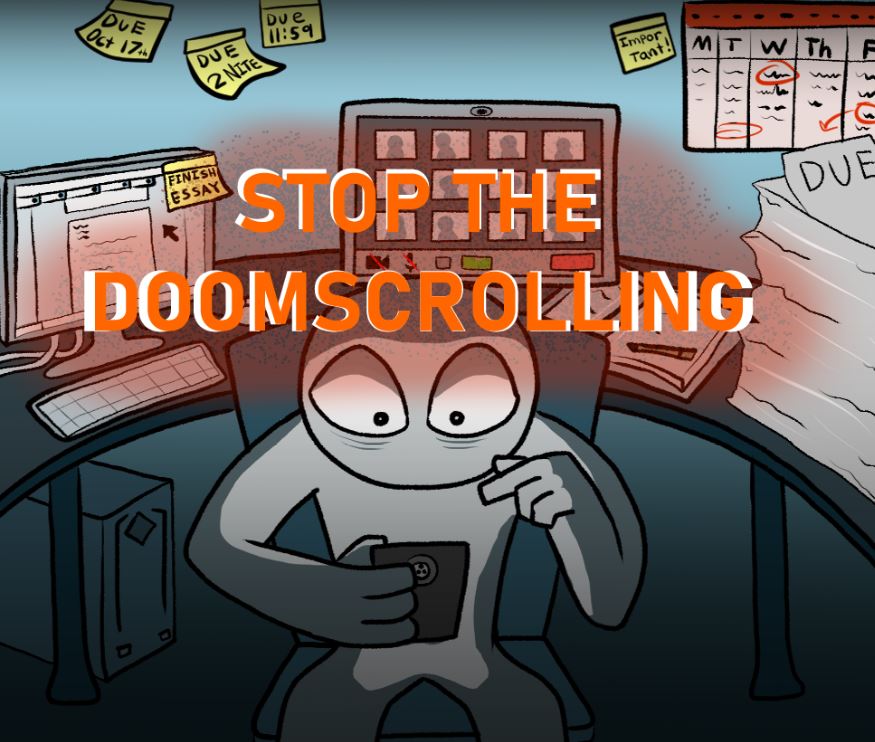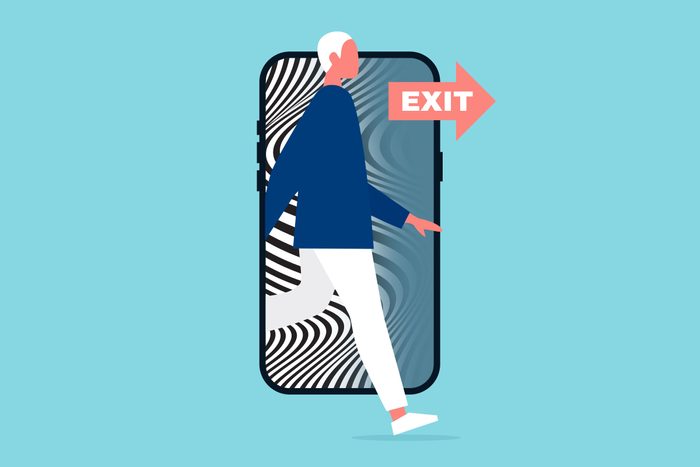
With an accelerated news cycle and a global pandemic of COVID-19, negative news may be everywhere and unavoidable. If you’re one of the many people who constantly refresh their social media feeds and other websites to keep up with everything in real-time, you’re not alone. The tendency is so widespread that it has its name: “Doomscrolling”.
What is Doomscrolling?
Doomscrolling, also known as doomsurfing, is a phenomenon in which you constantly scroll or surf around social media and other news sites to stay up to date on the newest events – even (and, it appears, especially) negative news.
Although the phrase is supposed to have originated on Twitter in 2018, it has gained traction in our cultural lexicon since then, especially after the beginning of the COVID-19 pandemic in March and April of 2020.

“Falling into deep, morbid rabbit holes filled with Coronavirus content, agitating yourself to the point of physical discomfort, erasing all hope of a good night’s sleep,” wrote Kevin Roose, a technology columnist. Doomscrolling doesn’t have to be about COVID-19 or Donald Trump, but given how the Coronavirus has dominated the news cycle throughout 2020, many people who are doomscrolling are fixated on news about COVID-19 or Trump.
How does Doomscrolling affect your Health?
“Doomscrolling can be a harmful habit, and detrimental to your mental and even physical health,” says Stephanie J. Wong, Ph.D., a certified clinical psychologist in San Mateo, California. Most Americans, according to Wong, are experiencing an “overarching sense of anxiety and depression” as a result of the present COVID-19 pandemic. Unfortunately, more information, particularly negative information, can increase anxiety and depression, creating a vicious cycle.
According to Wong, doomscrolling can exacerbate pre-existing or developing mental health issues. Even if you don’t have a history of mental illness, constant exposure to bad news can lead to catastrophizing, or a tendency to dwell on the negative parts of the world around you to the point where it becomes increasingly difficult to notice anything positive.

These mental health concerns might then escalate, resulting in physical problems. When you’re stressed, your body goes into overdrive and releases stress chemicals like adrenaline and cortisol, whether it’s low-level stress from doomscrolling or a sudden, stressful event like a car accident.
This evolutionary response, known as fight or flight, originally assisted humans in escaping predators and can still be advantageous in perilous circumstances today. People who are in the midst of a fight-or-flight response fueled by adrenaline and cortisol have been known to lift cars and perform other feats of strength, to have heightened senses of sight and smell, and to stay awake for long periods to study for finals or prepare for a big presentation.
How to stop Doomscrolling?
Quitting is easier said than done because news about the spreading pandemic is everywhere, and doomscrolling is a habit that may be addictive at times. There are, however, methods to stop – or at the very least, cut back.
- Set a time restriction for yourself: Setting time limitations (and reminders) can help you break out of a doomscrolling session because it can sometimes extend for hours. Set time limitations on your social media accounts to remind you to log off, or plan an activity with a friend during the times you’re most likely to doomscroll. Apps that limit your screen time, such as Freedom (which bans distracting websites), can help.
- Social media should be avoided: Avoid sites that have a lot of news or conversation, especially those that focus on how the world is struggling. Consider eliminating Facebook, Instagram, TikTok, or Twitter from your phone if they cause doomscrolling sessions. You can still access them through your browser, but it will take more time, especially if you have to log out and then back in each time.

- Set boundaries for yourself: People who struggle with doomscrolling or who suffer from depression or anxiety should set limits on the content they consume. Similarly, be aware of what topics you like to focus on and talk about, as well as how long you tend to talk about them.
- Gratitude should be exercised: Doomscrolling can make you forget about everything but what is wrong with the world. “List a few things you’re grateful for each day,” as a way to fight back. Making daily lists of things you’re grateful for, even if it’s only one thing, might help develop a sense of optimism and calm amid uncertain times, according to study.